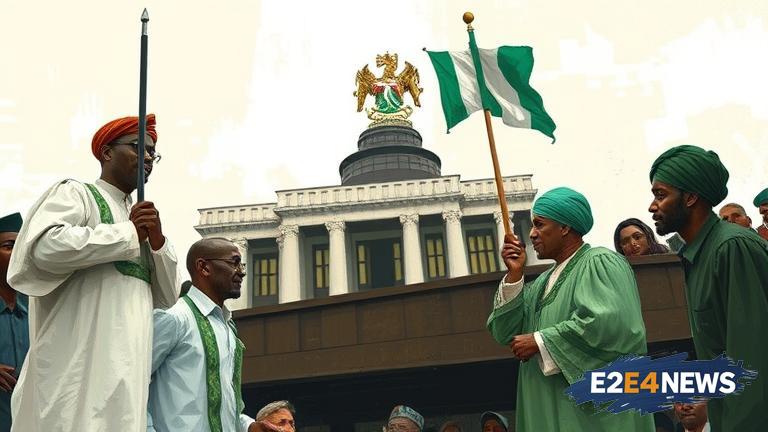The 1999 constitution of Nigeria has been a subject of controversy and debate among Nigerians, with many calling for its revision or outright replacement. The constitution, which was imposed by the military regime of General Abdulsalami Abubakar, has been criticized for its shortcomings and failures to address the country’s socio-political and economic challenges. One of the major concerns is the constitution’s emphasis on a centralized federal system, which has been blamed for the concentration of power and resources in the hands of the federal government. This has led to a sense of marginalization and exclusion among the various regions and ethnic groups in the country. Many Nigerians are advocating for a return to the principles of the 1963 constitution, which they believe provided a more balanced and equitable system of government. The 1963 constitution, which was in operation during the First Republic, had a more decentralized system, with greater autonomy and powers devolved to the regions. This, many argue, allowed for greater regional development and a more sense of ownership and participation among the citizens. However, the 1999 constitution, with its emphasis on a strong central government, has been seen as a major obstacle to regional development and autonomy. Despite the many attempts to amend the constitution, including the 2014 National Conference, the issues of decentralization and regional autonomy remain unresolved. The current debate on the constitution has been sparked by the growing sense of discontent and frustration among Nigerians, who feel that the system is not working for them. Many are calling for a more fundamental transformation of the system, rather than just tinkering with the existing constitution. The debate has also been fueled by the recent calls for secession and self-determination by some ethnic groups, who feel that the current system is not serving their interests. The Nigerian government has been accused of being slow to respond to these demands, and of being more interested in maintaining the status quo than in addressing the underlying issues. As the debate rages on, it remains to be seen whether the Nigerian government will heed the calls for constitutional reform, or whether the country will continue to muddle along with a system that is widely seen as flawed. The international community is also watching with interest, as the stability and prosperity of Nigeria, Africa’s largest economy, has implications for the entire region. The Nigerian people are eager to see a more responsive and accountable system of government, one that truly represents their interests and aspirations. The current constitutional conundrum presents an opportunity for Nigeria to re-examine its system of government and to create a more just and equitable society. Ultimately, the future of Nigeria depends on its ability to create a system that works for all its citizens, regardless of their region, ethnicity, or socio-economic status.
